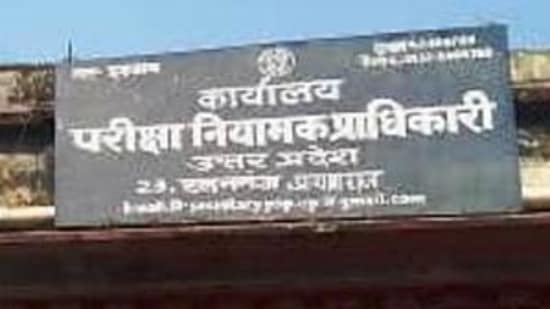Challenging a question asked by ERA in UP exams costs ₹500; students upset
Challenging a question asked by the Exam Regulatory Authority (ERA), UP, in an exam it conducts, is a most expensive proposition for a candidate.
Challenging a question asked by the Exam Regulatory Authority (ERA), UP, in an exam it conducts, is a most expensive proposition for a candidate. The Prayagraj-headquartered ERA charges ₹500 for objecting to each of its questions.

The ERA conducts the Uttar Pradesh Teacher Eligibility Test (UP-TET) besides teachers’ recruitment exams for government-aided primary and upper primary schools, among others.
The Rs-500 fee is in stark contrast to other bodies of the state that conduct examinations, like the Uttar Pradesh Public Service Commission (UPPSC), the Uttar Pradesh Higher Education Services Commission (UPHESC) and the Uttar Pradesh Secondary Education Service Selection Board (UPSESSB) which do not charge anything from the candidates for raising objections to questions asked by it in recruitment exams. Even the Staff Selection Commission (SSC), New Delhi, charges just ₹100 for objection on each question. This has candidates appearing in ERA exams quite upset.
After conducting exams, most bodies release tentative answer-keys to the questions asked by it in the exams and invite objections, if any, from the candidates, and then, after getting the objections removed by subject experts, release a final answer-key based on which it awards marks to the candidates and releases the final result.
“Charging a fee of ₹500 from candidates for objection to each question is unjust and especially unfair for candidates belonging to economically weaker sections. Let’s not forget that it is the job of the examination conducting body to engage subject experts who prepare question papers without any mistakes or anomalies. But on one hand the ERA is failing to do so and then charging candidates heavily who point out anomalies,” said Avanish Pandey, president of Pratiyogi Chatra Sabha, an organisation representing educated unemployed youths vying for government jobs.
So, if a candidate appearing in ERA exams points out a fault in three or four questions, the body ends up earning ₹1,500 to ₹2,000. “ERA is earning lakhs every year by levying this fee. Just for the recently conducted recruitment exam for 1,504 posts of assistant teachers and 390 posts of headmasters in government-aided junior high schools of UP, the ERA had received 754 objections and earned ₹3.77 lakh from candidates pointing out its possible mistakes in questions asked in question papers,” said Prashant Pandey, a competitive exam candidate based in Prayagraj.
However, officials cite their own reasoning for levying a high fee for raising these objections. “The aim behind charging ₹500 per objection to a question is to deter non-serious objection-makers from lodging objections as this results in unnecessary delay in declaring results. It should not be forgotten that ERA refunds the fee charged if the objections raised are found to be true,” said Sanjay Kumar Upadhyay, secretary, ERA, UP.












